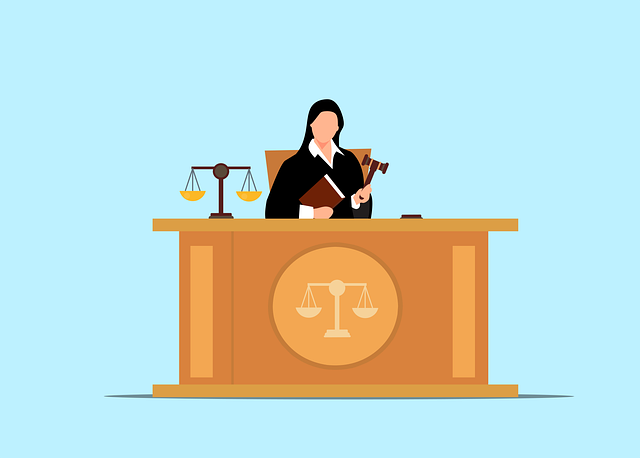Radaris, a free people finder tool, revolutionizes access to public data by consolidating records from diverse online and offline sources. It offers comprehensive profiles, including addresses, phone numbers, employment histories, and more, through simple name-based searches. While powerful for reconnecting friends, background checks, and professional verification, it raises privacy concerns due to its extensive data aggregation capabilities. Users must be mindful of ethical considerations when utilizing such free people finder services.
“Uncover identities with Radaris, your ultimate free people finder. This innovative tool aggregates public records and online profiles, providing a comprehensive database for efficient searches. Understanding Radaris’ concept and its method of aggregating data offers a powerful resource for various applications. From verifying contacts to conducting background checks, it streamlines the process. However, privacy concerns and limitations should be considered when using Radaris as a free people finder, ensuring responsible usage.”
- Understanding Radaris: The Concept of a Free People Finder
- How Radaris Aggregates Public Records and Online Data
- Benefits and Applications of Using Radaris as a Free People Finder
- Privacy Concerns and Limitations of Radaris as a People Search Tool
Understanding Radaris: The Concept of a Free People Finder

Radaris is a powerful online tool that operates as a free people finder, revolutionizing the way individuals connect and verify personal information. It aggregates public records and online profiles from various sources, offering users an extensive database to search for and identify individuals. By harnessing this vast data, Radaris provides a unique service, enabling users to locate friends, family, colleagues, or even long-lost acquaintances with ease.
As a free people finder, Radaris democratizes access to public information, making it available to everyone. Users can simply input a name and other basic details to initiate a search, which returns matching profiles from different platforms, including social media sites, professional networks, government records, and more. This innovative approach has transformed the way we connect and interact with one another in today’s digital age.
How Radaris Aggregates Public Records and Online Data

Radaris is a powerful tool that revolutionizes the way we access and connect with public records and online profiles. It acts as a free people finder, aggregating vast amounts of data from diverse sources to create a comprehensive digital tapestry. By utilizing advanced search algorithms, Radaris sifts through numerous databases, including government records, social media platforms, and professional networks, to pull together information about individuals across the globe.
This innovative technology ensures that users can quickly uncover relevant details such as addresses, phone numbers, employment history, and educational backgrounds. Unlike traditional search engines that might only scratch the surface, Radaris delves into the digital labyrinthine, uncovering hidden remnants of online activity. Its ability to connect disparate data points makes it an indispensable resource for professionals in various fields, including investigators, employers, and researchers, who rely on accurate and up-to-date public records.
Benefits and Applications of Using Radaris as a Free People Finder

Using Radaris as a free people finder offers numerous benefits, especially for individuals and businesses seeking to connect with others or conduct thorough research. One of its key strengths is aggregating public records and online profiles from various sources in one comprehensive platform. This allows users to access accurate and up-to-date information on almost anyone with just a few clicks. Whether you’re trying to reconnect with old friends, verify an employee’s background, or perform a simple search for a classmate, Radaris streamlines the process.
The application of this free people finder goes beyond personal use. Businesses can leverage its capabilities for customer verification, market research, and even fraud prevention. With its ability to uncover hidden patterns and connections, Radaris helps companies make informed decisions, enhance security measures, and maintain compliance with relevant regulations. Its user-friendly interface ensures that anyone, from tech-savvy professionals to those new to online searches, can leverage its powerful tools effectively.
Privacy Concerns and Limitations of Radaris as a People Search Tool

While Radaris offers a powerful platform for searching public records and online profiles, it’s crucial to address privacy concerns associated with its use. As a free people finder, Radaris aggregates vast amounts of data from various sources, including social media platforms, court records, and public databases. This comprehensive coverage can be both a strength and a weakness. On one hand, it enables users to locate missing persons, verify identities, or conduct thorough background checks. However, the very nature of its extensive data collection raises significant privacy issues. Individuals may feel their personal information is being invaded, especially if they haven’t consented to its use.
Additionally, Radaris’s reliance on public records means that sensitive details, such as criminal history or financial records, can be accessible with minimal effort. This accessibility, while beneficial for legitimate investigations, can lead to potential misuse by those seeking to invade privacy or engage in stalking or identity theft activities. Users of free people finder tools like Radaris must therefore exercise caution and consider the ethical implications of their searches to ensure they respect the privacy rights of others.














